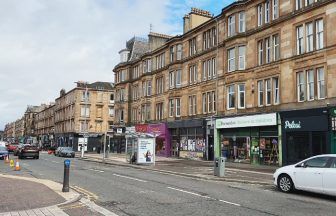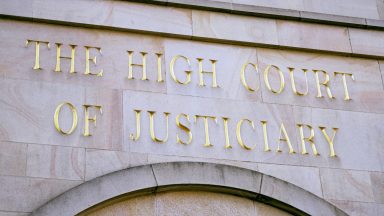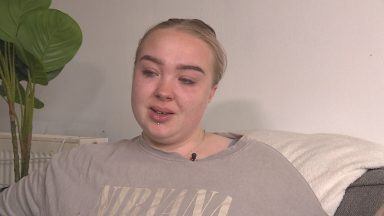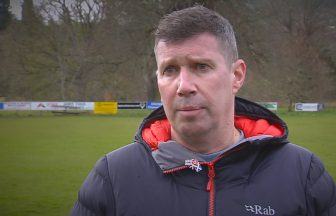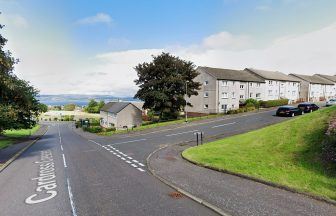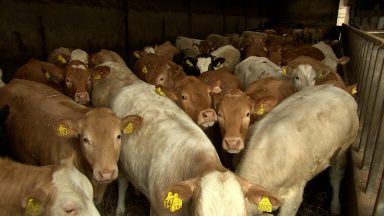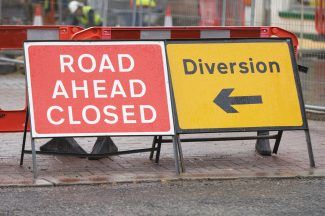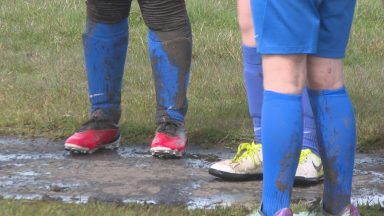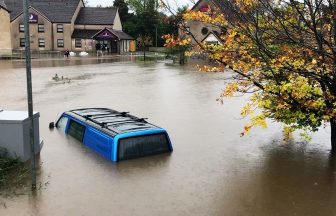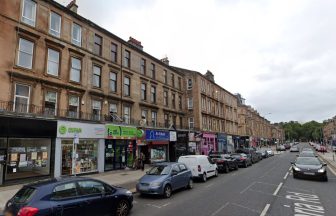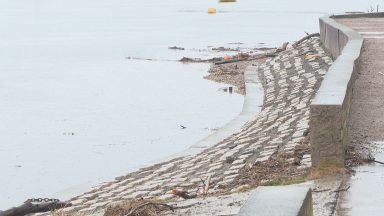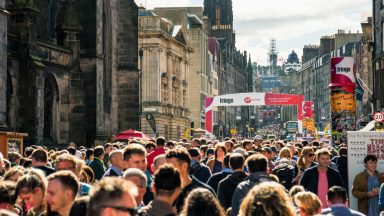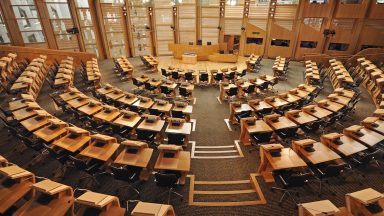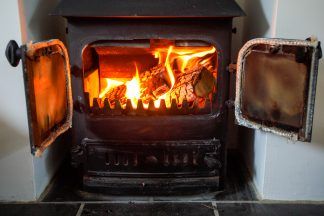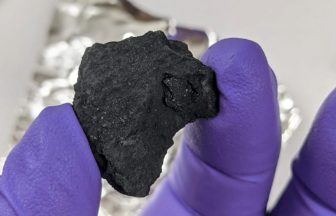The sun’s out, the summer is near enough upon us and some lockdown restrictions have been eased.
This will understandably be cause for celebration around the country but the advice – the plea – from the Scottish Government is: please don’t go nuts.
Yes, we have entered phase one of the Scottish route out of lockdown – but it’s only the first phase of four.
Nicola Sturgeon spoke on Thursday of being “nervous” about the lifting of some measures, saying: “I worry that the limited changes that we’re making to these rules might lead to much greater change in reality.”
“I really need your help to make sure that is not the case,” she added.
The First Minister fears that if people take liberties it could undermine the “real but fragile” progress made driving down Covid-19 deaths, hospital admissions and case numbers.
So what has exactly changed as of Friday – and what are you allowed to do?
Going out and meeting others
For a few weeks now, we’ve been able to go out for as much daily exercise – or take our dogs out for as much daily exercise – as we need.
Now, we are also permitted to sit outside in a public space like a park or on a bench to relax, sunbathe, eat lunch or whatever else.
We can also do any of those things both with members of our own household and people from one other household per day.
However, you must maintain a two-metre distance between you and the other household, and ensure good cough and hand hygiene – if you have to cough or sneeze, do so into a tissue or your elbow, keep your hands clean and try not to touch your face.
Take an alcohol-based hand sanitiser with you and use it often, especially before eating or after touching surfaces, and try to avoid touching hard surfaces such as gates, walls, fences and park benches.
The advice is that any such meeting, say, a picnic in the park with friends, or a barbecue in the garden with family, should have no more than eight people present, comprised of no more than two households.
It also means that if, for example, four people live in your house, each person should not go off on their own to meet people from four separate households.
Each household should only mix with one other household each day – to minimise the risks of spreading the virus.
And if you are having a picnic, a barbecue, or a few drinks, each household should bring their own cups, plates and cutlery.
Any surfaces both households touch should be wiped down and everyone should wash their hands frequently.
Finally, you should not go inside anyone else’s house – meetings should be entirely outdoors. If you expect the meeting will result in you needing the toilet at some point, you shouldn’t go.
If you have to go through a house to access a garden, do that quickly and without touching surfaces.
These rules are not to be confused with the new guidance in England, where people from more than two households are allowed to meet outdoors but in numbers of no more than six.
Travelling
We are now allowed to travel to places in our local area for recreation or exercise.
Ideally, we should travel on foot, by bicycle or by car if we have to – but try to avoid public transport.
In the event you do use public transport, for any reason, you should wear a mask or face covering, while doing your best to stay socially-distanced from others.
The Scottish Government says we should limit any travel to five miles – but this is advisory rather than the letter of the law.
For example, if you want to go see your mum in her garden but she lives further away than that, you can do it.
But be mindful of the public health guidance about not going inside anyone else’s house – if it can’t be done safely, the advice is, don’t do it.
Unless absolutely essential, you shouldn’t travel to and from the islands in order to prevent the spread of the virus to more remote communities.
You should avoid travelling to tourist hotspots and beauty spots that are not in your local area.
If you arrive somewhere, like a park or beach, which is crowded and where physical distancing is difficult, use your common sense and go somewhere else.
If you (or a person in your care) have a specific health condition that requires you to travel beyond your local area to maintain your health, then do that.
If you have a disability and need to travel a bit further to find appropriate outdoor space or to exercise or take part in an outdoor activity safely, you can do that too – for example, if you use a wheelchair and need a location that has accessible parking and level access.
Outdoor activities and sport
There has been a relaxation on restrictions of most non-contact outdoor sport and activities.
All the same rules above still apply: you must keep socially-distanced, be hygienic and not put yourself or others at risk.
Most importantly, you must not do any of these sports or activities with more than one other household per day
For example, events such as organised races, walking club trips and cycle club rides involving people from more than two households are not allowed.
But the Scottish Government has produced a non-exhaustive list of the types of outdoor activities that are now allowed:
- Tennis
- Golf
- Fishing
- Athletics
- Lawn bowls
- Canoeing, surfing and water sports
- Horse riding
- Croquet
- Archery
- Cycling
- Walking
Indoor sports facilities such as gyms remain closed.
However, one-on-one personal training or coaching is permitted provided it is outdoors and with either a member of your household or one other household.
If the coach or trainer is from another household to your own, only go ahead if you are able to keep two metres apart.
A coach or personal trainer should not deliver training to more than one household at any one time or provide training to more than one household per day.
You should both avoid touching surfaces, where possible, sharing equipment or touching your mouth and face.
Wipe down any surfaces or equipment you do touch and wash your hands before and after your activity.
Businesses
The majority of businesses must still stay closed in phase one, including non-essential retail, pubs, restaurants, cinemas and most offices.
However, with the focus on outdoor activity in phase one, garden centres and plant nurseries have been permitted to reopen with physical distancing in place
However, any accompanying cafes cannot yet open, unless for takeaway only.
Drive-through food and drink outlets can begin to resume work.
Construction firms, meanwhile, can begin their first phase of restarting work by getting building sites prepared.
Work carried out in people’s homes, for example by tradespeople carrying out repairs and maintenance, can continue, provided the worker is well, not showing coronavirus symptoms and neither they nor any of their household are self-isolating.
People who work on their own outside, like gardeners, window cleaners or people working in rural areas, can work if it can be done safely.
And businesses that are allowed to reopen in phase two can begin preparing for the return of staff – including small retail shops, outdoor markets and pubs, restaurants and cafes with outdoor spaces.
Beer gardens, for example, will be allowed to reopen in phase two – but strictly confined to outside.
Other businesses in this category include factories, warehouses and lab and research facilities.
Travel agents, while still staying closed, may take bookings online or on the phone for future dates.
Schools and gatherings
From Monday, teachers and other staff will be able to return to schools to prepare for re-opening.
However, most pupils in Scotland will not return until the new term on August 11.
Public gatherings of more than two households are still not permitted for any reason, with weddings, baptisms and other ceremonies in public spaces still restricted.
The only exception is a gathering that is essential for work purposes, or to fulfil legal obligations.
However, companies should try to minimise all meetings and other gatherings in the workplace and practice physical distancing and good hygiene.
As before, funerals can take place attended by close family or other members of the deceased’s household.
If no family member or member of the same household is able to attend, a friend living in a separate household can attend.
Face coverings
You should wear a mask or covering over your mouth and nose when you are in a closed, indoor space like a shop or on public transport.
This is not yet mandatory in Scotland but a recommendation.
But evidence suggests it has a weak but noticeable effect in reducing transmission of coronavirus – chiefly protecting others, like shop workers and train ticket collecters, rather than the mask-wearer themselves.
That’s because people infected spread the virus from respiratory droplets produced by breathing, talking, coughing or sneezing – wearing a mask blocks you from passing those to someone else.
You may not think you’ve got – or have ever had – coronavirus, but the science suggests a significant proportion of Covid carriers do so with very mild symptoms or no symptoms at all.

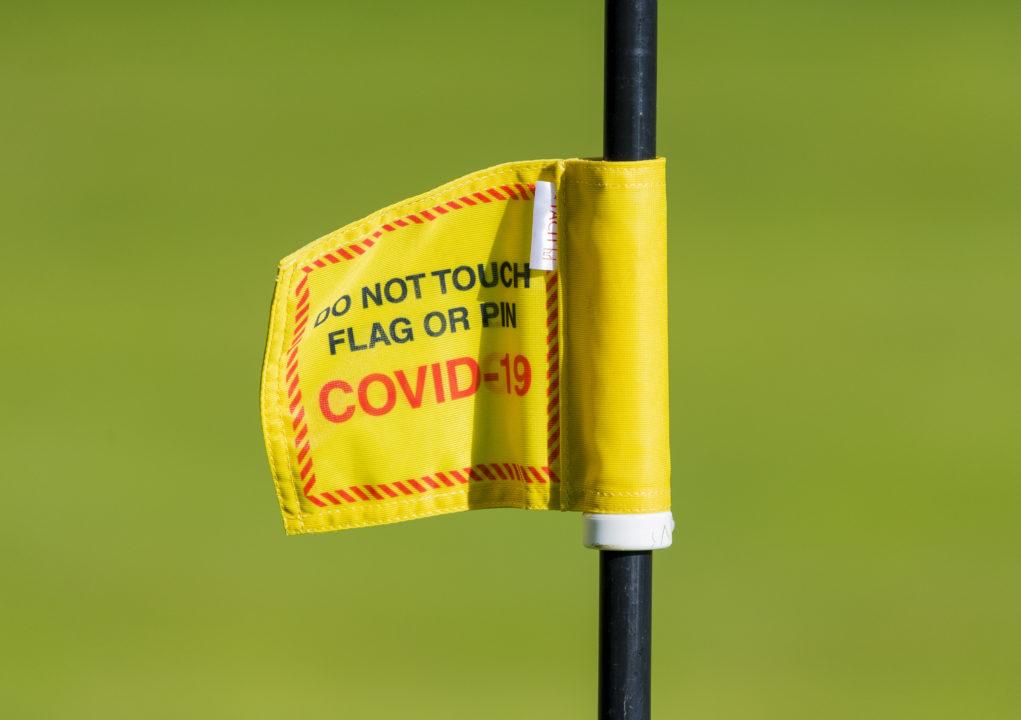 /SNS
/SNS
